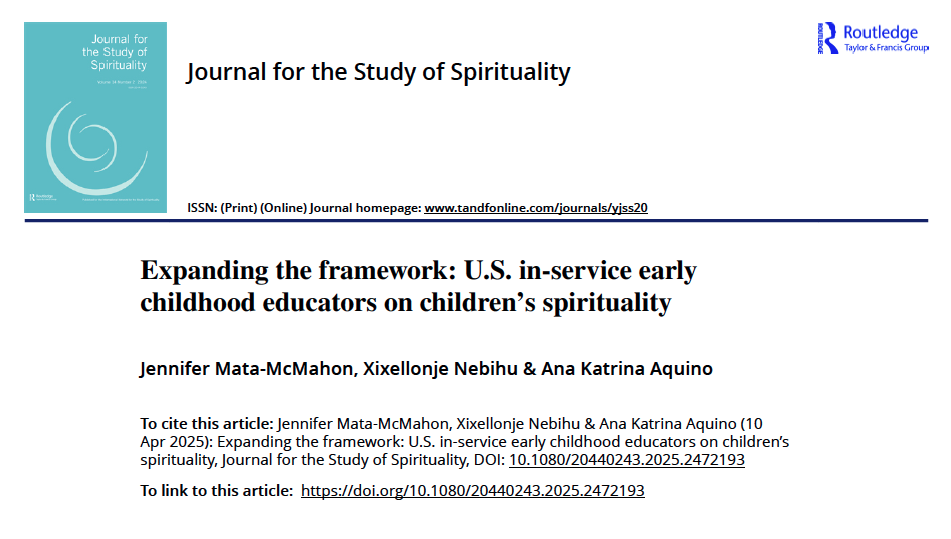Expanding the Framework: US in-service Early Childhood Educators on Children's Spirituality (2025)
Abstract: This paper reports on an ongoing study examining children’s spirituality in secular contexts. Utilizing the Early Childhood Educators’ Spiritual Practices in the Classroom (ECE-SPC) instrument (Mata-McMahon, Haslip, and Kruse 2023), responses to the question, ‘What do you understand children’s spirituality to be?’ were analyzed. In the first phase, 365 educators from 36 U.S. states working with children aged zero to eight responded, with 318 answers analyzed (Mata-McMahon, Haslip, and Hossain 2024). The second phase involved 559 educators from all 50 states, with 513 responses analyzed. Findings from both phases revealed a nuanced understanding of children’s spirituality. A grounded theory approach (Glaser 1992) with in vivo and axial coding (Charmaz 2006) organized responses into a response framework. Phase I identified three categories: Essence (f 201), Origin (f 122), and Action (f 86). In Phase II, responses were categorized into Concepts defining children’s spirituality (f 385), Manifestations of spirituality (f 123), Factors to promote children’s spiritual growth (f 89), and Expectations of the role of adults and children when referring to spirituality (f 58). The expanded framework aids in creating a shared understanding of children’s spirituality, supporting efforts to nurture the spiritual dimension of children’s development in secular educational settings.
Keywords: Early childhood educators; conceptualization of spirituality; children’s spirituality; educators’ perceptions; secular educational settings; in-service educators







